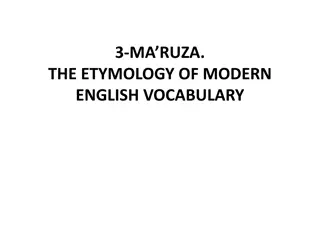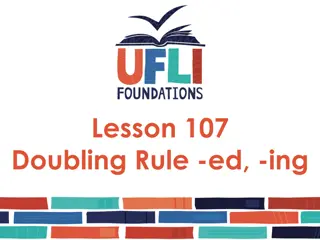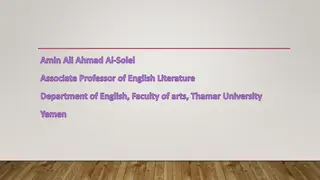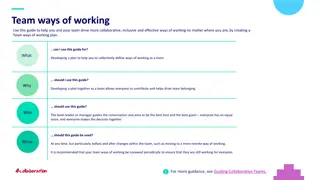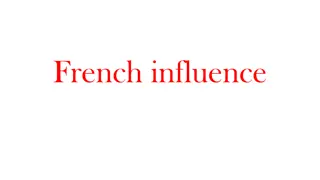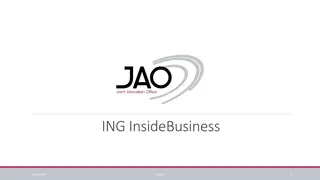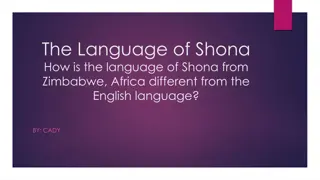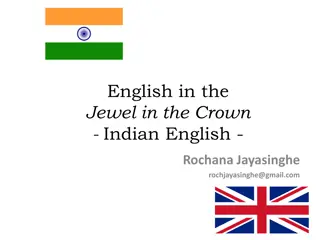
Role of English Language in Promoting Social Issues
Explore the importance of the English language in conveying and discussing various political ideologies, as illustrated by the speech of Emma Watson and Thierry Henry. Discover how modal verbs like may, might, and must express possibilities and necessities in English communication. Reflect on the significance of equality and justice through famous quotes by notable figures.
Download Presentation

Please find below an Image/Link to download the presentation.
The content on the website is provided AS IS for your information and personal use only. It may not be sold, licensed, or shared on other websites without obtaining consent from the author. If you encounter any issues during the download, it is possible that the publisher has removed the file from their server.
You are allowed to download the files provided on this website for personal or commercial use, subject to the condition that they are used lawfully. All files are the property of their respective owners.
The content on the website is provided AS IS for your information and personal use only. It may not be sold, licensed, or shared on other websites without obtaining consent from the author.
E N D
Presentation Transcript
CONJUNTO 1 L NGUA INGLESA 9 ano
UNIT 2 Emma Watson is an actress and activist. She is famous for her participation in the Harry Potter film series. She is United Nations Women Goodwill Ambassador.
UNIT 2 Observe a import ncia da l ngua inglesa em textos, como o discurso de Emma Watson, para a divulga o e discuss o de diferentes ideias e posicionamentos pol ticos. UN WOMEN. Emma Watson: gender equality is your issue too. 20 set. 2014. Dispon vel em: www.unwomen.org/en/news/stories/2014/9/emma-watson-gender-equality-is-your-issue-too. Acesso em: 22 jun. 2022.
...Racism is the biggest problem facing football across Europe. People may think it has disappeared, but it hasn t. It s time for us all to take a stand players, fans and authorities. It s time to stand up and speak up . THIERRY HENRY UNIT 2 MULTI-WORD VERBS An ncios publicit rios (advertisements ou ads) empregam recursos verbais e n o verbais para chamar a aten o de determinado p blico- alvo e persuadi-lo a consumir um produto ou a aderir a uma ideia. What is the meaning of stand up in the advertisement? a. To be on your feet. b. To deal effectively with a difficult situation.
I. I mightgive birth to a child one day. II. They may not know it UNIT 2 I might give birth to a child one day is equivalent in meaning to Perhaps I will give birth to a child one day. MODAL VERBS: MAY, MIGHT, MUST They may not know it is equivalent in meaning to Perhapsthey don t know it. We use modal verbs such as may, might and must before the main verb in the infinitive (without to). In fragments I and II, may and might express possibility.
I. we must make sure we equip children for all facets of life II. we must ensure that male and female children share equal obligations UNIT 2 we must ensure that male and female children share equal obligations is equivalent in meaning to MODAL VERBS: MAY, MIGHT, MUST it is necessary that we ensure that male and female children share equal obligations. We use modal verbs such as may, might and must before the main verb in the infinitive (without to). In fragments I and II, must expresses Necessity,
UNIT 2 Again, it may be said, that to love justice and equality the people need no great effort of virtue; it is sufficient that they love themselves. (Maximilien Robespierre) REFLEXIVE PRONOUNS One of the things about equality is not just that you be treated equally to a man, but that you treat yourself equally to the way you treat a man. (Marlo Thomas) I want for myself what I want for other women, absolute equality. (Agnes Macphail) ROBESPIERRE, Maximilien. Again, it may be said, that to love justice and equality... In: WREN, Linnea H. (Ed.). Perspectives on Western art. Nova York: Routledge, 1994. v. 2, p. 212.; THOMAS, Marlo. One of the things about equality is not just you be treated equally to a man... In: DEMAKIS, Joseph. The ultimate book of quotations. Raleigh: Lulu, 2012. p. 101.; MacPHAIL, Agnes. I want for... In: GREAT CANADIAN SPEECHES. Agnes Macphail on women's equality, 1925, 1930. [2022?]. Dispon vel em: https://greatcanadianspeeches.ca/2017/10/27/agnes-macphail-on-womensequality-1925-1930/. Acesso em: 22 jun. 2022.


